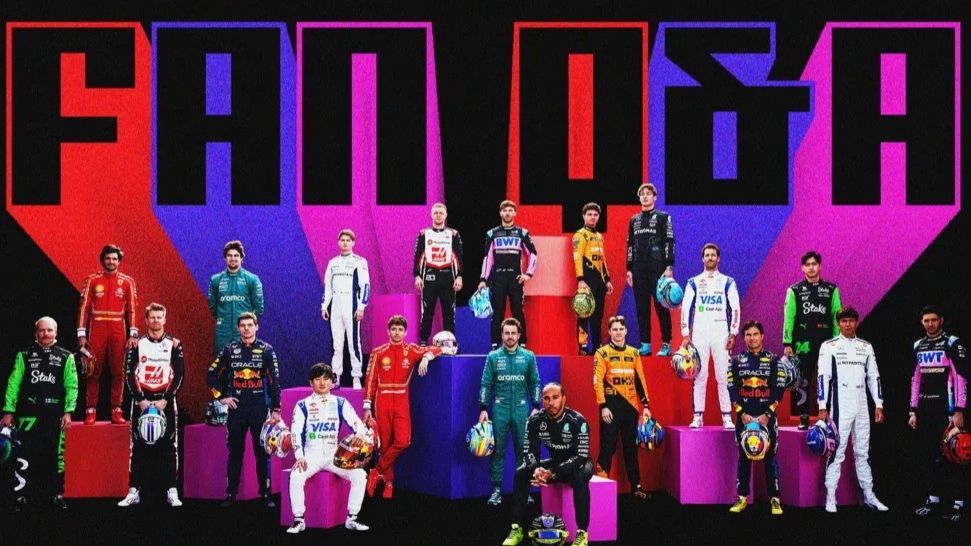
There was drama following the conclusion of the Belgian Grand Prix when race winner George Russell was disqualified after his Mercedes was found to be underweight.
Russell’s team-mate Lewis Hamilton, who finished second, inherited the victory to move on to 105 career wins, while McLaren’s Oscar Piastri was promoted to P2 and Ferrari’s Charles Leclerc lifted up to third place.
BBC Sport F1 correspondent Andrew Benson answers your questions as Spa signals the start of the summer break.
What is the impact of George Russell having an underweight car? How much time does that give? – Martin
A 1.5kg reduction in weight would give a lap-time advantage in the region of 0.05-0.06secs, or 2.3-2.6secs or so over a race distance.
One could argue all day as to whether that was decisive in winning the race, but that’s not the point. If the car exceeds the permitted limits, it has contravened the regulations and therefore it is disqualified.
What happened with Mercedes regarding fuelling? How is it the driver’s fault? – Anon
Mercedes have not yet said why it happened but team boss Toto Wolff admitted they had “clearly made a mistake”.
“We will go away, evaluate what happened and understand what went wrong,” he added.
Trackside engineering director Andrew Shovlin said that the team suspected Russell’s switch to a one-stop strategy during the race – something no one thought was possible before the start – might be a “contributing factor”.
That’s because Russell’s tyres would have more wear on them than expected. Given the difference between the car being legal and not would be just 375g per tyre, that’s certainly a possibility.
But as Mercedes have already admitted, it is also no excuse.
The driver drives the car – and so he has benefited from whatever advantage a transgression of the rules has given him. So he has to be punished along with the team. Disqualifying a car but leaving its driver in the results wouldn’t make any sense.
What do you think Lewis Hamilton’s chances are of winning the drivers’ world championship? – Callum
Virtually nil. Hamilton is 127 points behind championship leader Max Verstappen with 10 races remaining.
Hamilton therefore would have to claw back nearly 13 points on average on Verstappen at every race. The law of averages says that’s just not going to happen. Even with three of those races being sprint events, where a few more points are available than normal.
Even McLaren’s Lando Norris, Verstappen’s closest challenger, has very little hope. He is 78 points adrift. That’s 7.8 – effectively eight – points a race.
Even if Norris won every remaining race and Verstappen was second every time, he still wouldn’t catch him.
Of course, it’s still mathematically possible. But it’s extremely unlikely anyone but Verstappen will win the drivers’ title.
The constructors’ championship is a different matter. McLaren are 43 points behind and both cars score points in that. Whether Sergio Perez is replaced or not by Red Bull – and it seems pretty likely – that still looks do-able given the current competitive picture.
How is the F1 summer break enforced at the factories? Are doors sealed, cars locked away? Does it affect design teams working on next year? – Jeremy
Governing body the FIA monitors it. Basically, anything to do with car performance or production has to be shut down for two weeks from the end of this week.
It doesn’t stop people thinking, but they are not allowed to do any work that can be monitored. Computers are turned off. No one is allowed in. So, no design, no engineering meetings, no building parts, no simulation of any kind, no nothing.
Of course, team bosses can still talk to drivers and engineers and so on – and to each other. But talking is all they can do.
Are team radios good for the sport? Or do they give too much data to drivers – optimum strategies and team orders – that diminish driver skills? – Jason
This is a matter of opinion. But a few years ago F1 tried doing away with team radio during races, and the biggest impact was on the audience.
Taking away all those radio conversations diminished the television spectacle in a number of different ways, so the project was abandoned.
Red Bull have engineers and the team principal on the pit wall, while Mercedes stay in the garage during a race weekend: what are the pros and cons? – Nathan
It’s a personal choice. Everything is done by radio transmission or computer or television screen, so no one absolutely needs to be on the pit wall, as Mercedes have proved.
And all teams have remote race-operations teams in their factories feeding into decisions at the track.
But some teams prefer to be on the pit wall, which dates back to a time when there was no other way to effectively monitor the race. So they stick with it.
